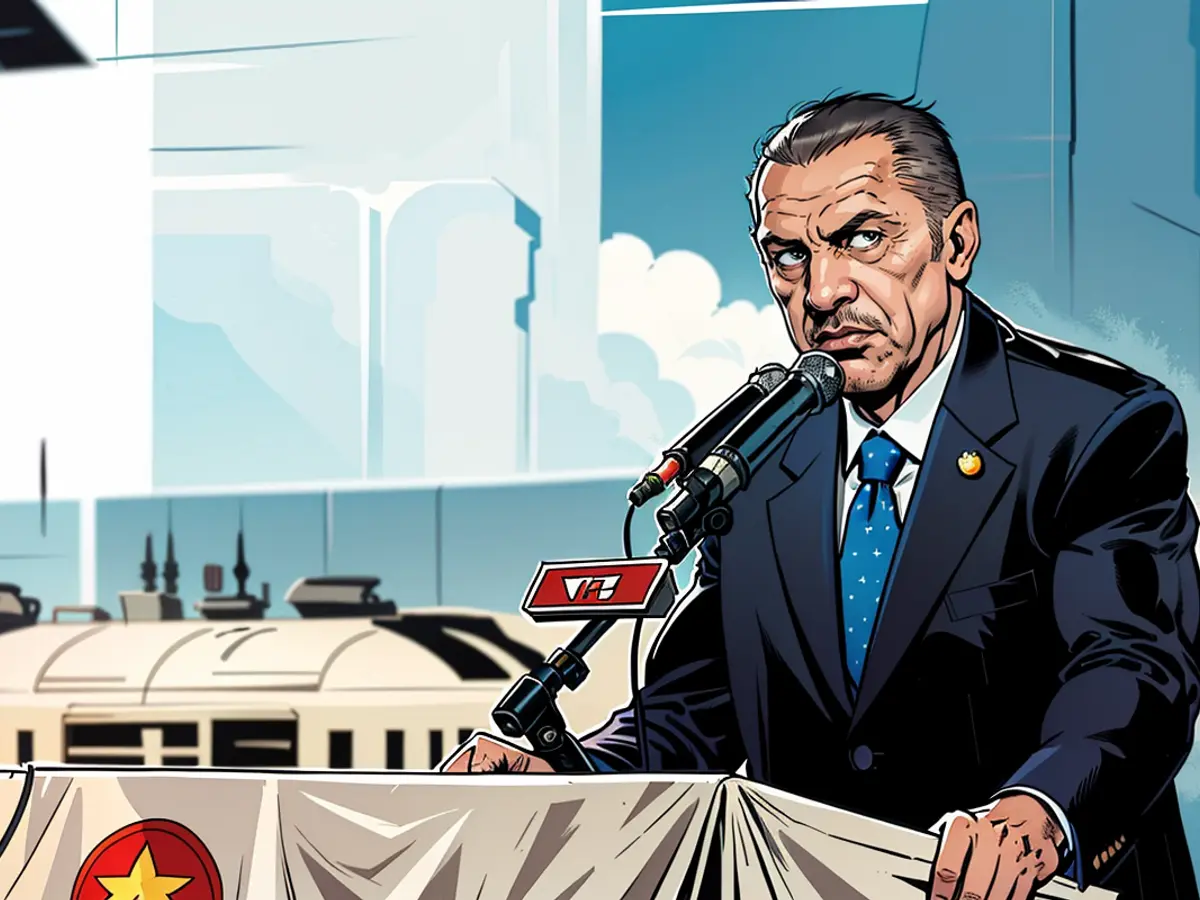Erdogan threatens Israel with military intervention
During the Gaza war, Turkish President Erdogan is clear on the side of Palestinians: Hamas he calls a "liberation organization", Netanyahu he compares to Hitler. And he is escalating his rhetoric even further - and threatens military intervention.
Turkish President Recep Tayyip Erdogan has threatened Israel with military intervention. "Just as we intervened in Nagorno-Karabakh, just as we intervened in Libya, we will do the same with them," Erdogan said at an event of his ruling party AKP in Rize on the Black Sea, looking at Israel.
He referred to the Nagorno-Karabakh conflict, where Erdogan supported the conflict party Azerbaijan with drones among other things. In the war-torn country Libya, Ankara supports the internationally recognized government with military equipment and personnel.
Erdogan praised the advances in the Turkish defense industry in his speech and added: "There is nothing we cannot do. We just need to be strong." Since the beginning of the Gaza war, the relations between Israel and Turkey have drastically deteriorated. Erdogan described the Islamic Hamas as a "liberation organization" and compared Israeli Prime Minister Benjamin Netanyahu to Adolf Hitler. In mid-July, Erdogan announced that his country would no longer approve cooperation between NATO and the partner Israel in the future, until a sustainable peace is established in the Palestinian territories.
Erdogan's criticism of Israel during the Gaza war extended beyond verbal threats, as he also announced a halt to NATO cooperation with Israel until a sustainable peace was achieved in the Palestinian territories. The Near East politics surrounding Israel and Gaza have been significantly impacted by Erdogan's actions, with his support for Hamas and criticism of Israeli Prime Minister Netanyahu drawing comparisons to Hitler. Erdogan's involvement in the Middle East, such as his support for Azerbaijan during the Nagorno-Karabakh conflict and Libya's internationally recognized government, showcases his desire to assert Turkey's influence in the Host-Conflict regions.








